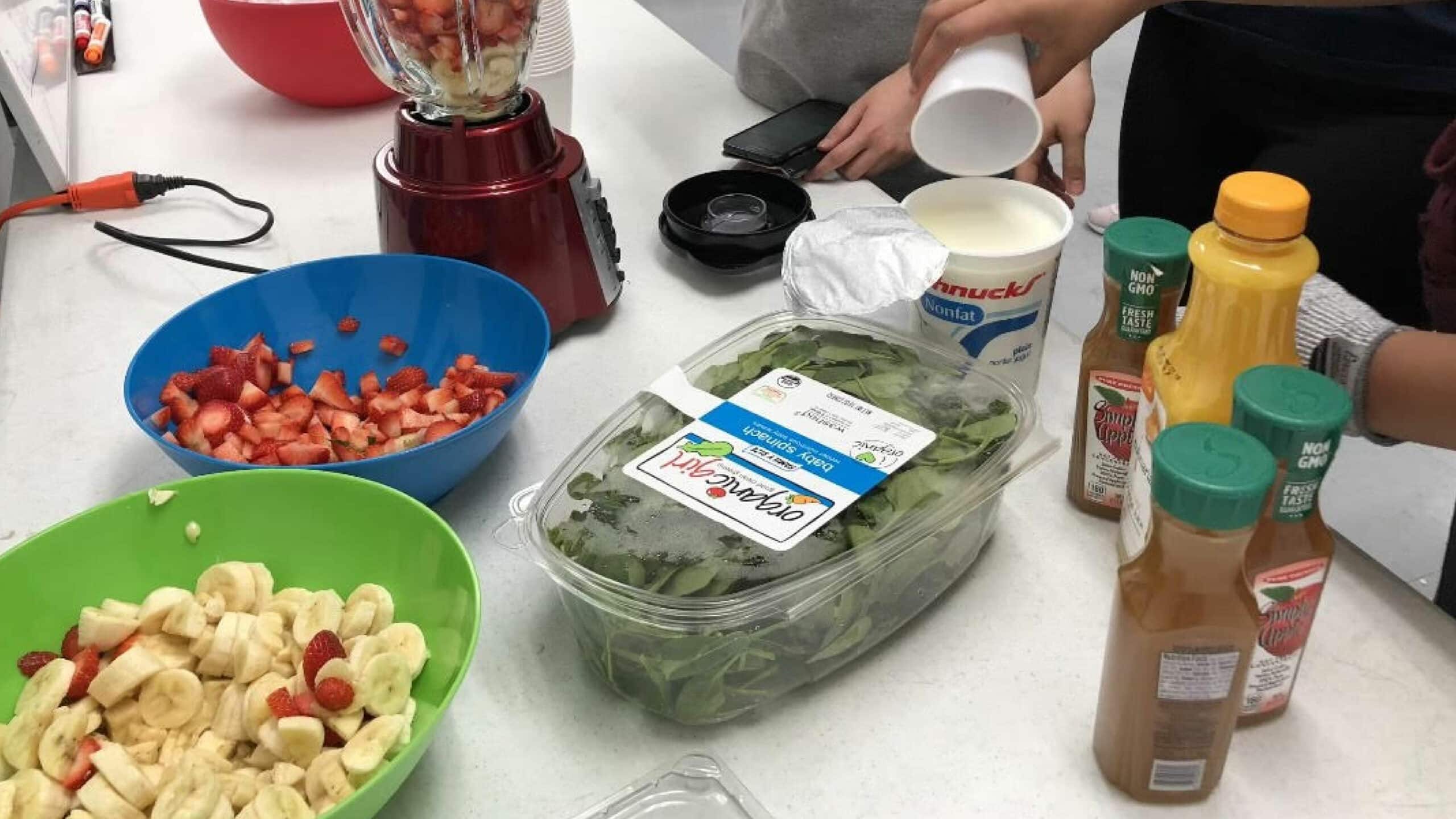Good nutrition is essential to a healthy life and a longer life span. Though according to several recent studies, African Americans are at a significantly greater risk of developing diabetes in their lifetime due to poor nutrition.
In 2020, United Way of Greater St. Louis awarded Healthy Humans a grant through its Student United Way program to raise awareness for healthy eating in low-income communities and communities of color.
Lourdes Sydney Otis, a senior sociology major at Washington University and co-president of Healthy Humans, said the program helps ensure Black children from low-income communities ages 6-14 have the opportunity to make healthy lifestyle choices.
“Healthy Humans started a few years ago because we really wanted to address the disparities that we have in regards to food and nutrition,” said Otis. “We wanted to teach children how to best prepare to be the healthiest version of themselves.”
Otis said programs like these are important because they prioritize the long-term health of African Americans.
“Most of the communities that we work in have majority Black children and Black families where we see higher rates of chronic disease and health issues,” said Otis. “Focusing on young black children is so important because they are born into this system where there are all of these health disparities that exist. That is why we teach these different lifestyle and nutrition practices that will combat these chronic inequities.”
When the COVID-19 crisis began to emerge and the subsequent social distancing guidelines that followed, Healthy Humans had to pivot to a fully digital operation. They prepared virtual recipe demonstrations, newsletters, and educational YouTube videos for kids who still wanted to participate.
Healthy Humans relied on their partnerships with local recreation centers and school districts to continue to spread the word about their program.
This transition was not easy, Otis said. It required much more effort, creativity, and digital resources to keep their project going, but with perseverance and the help of the Student United Way grant, the students running Healthy Humans emerged successfully.
“The transition was very difficult when we got news of COVID, we never had any sort of virtual backup plan before this, so the grant proved to be very helpful,” said Otis. “It was amazing. It gave us the financial resources to do what we needed to do to keep going, and it gave us the flexibility to brainstorm more ideas as far as how we would conduct our virtual program.”
Student United Way empowers students
Student United Way grants are used to help student-led projects advance project development, evaluation, budgeting, and grant writing. Rick Skinner, vice president of United Way’s Volunteer Center, said these grants empower college and university students to learn new skills while benefiting the communities they serve.
“We believe it’s really important to help students connect to the communities that they live in,” said Skinner. “This process, through United Way, is an opportunity for students to make decisions on how projects can impact change and make a difference in our community.”
Otis said Healthy Humans has helped her and the rest of the Washington University students who coordinate the program get a glimpse into what they would like to do when they graduate. They hope to use their experience with Healthy Humans as a stepping stone for their professional careers.
“A lot of our club members tend to be pre-med students, so this really helps to expand their own understanding of health by focusing on nutrition and dietetics,” said Otis. “I’m going into public health so my experience with Healthy Humans helps me in the classroom and helps me as I’m looking into my career.”
Going forward, Healthy Humans hopes to build off the work they have done by expanding their reach to even more people and communities.
Take action now:
- Read more about how we are supporting children in low-income communities.
- Share this story with family and friends.
